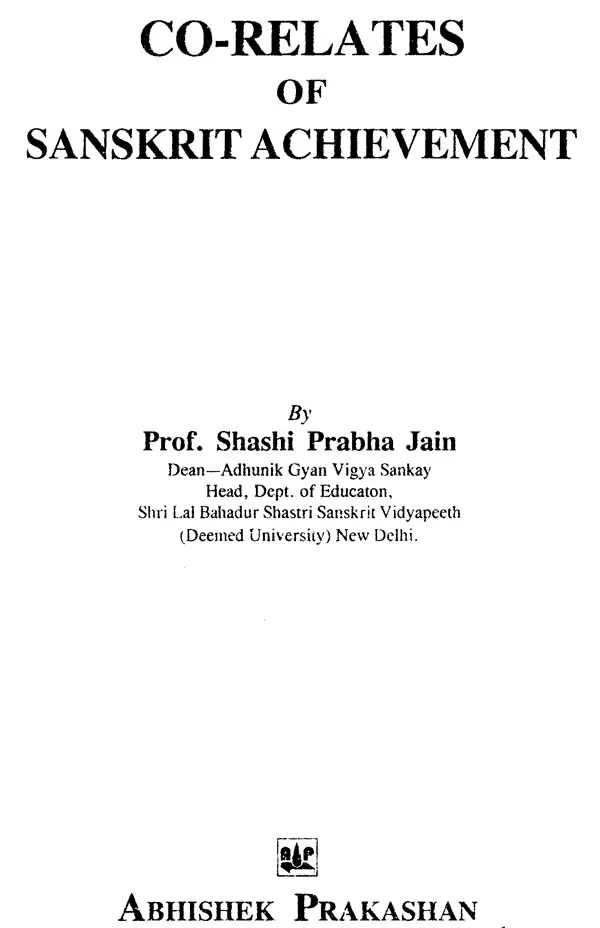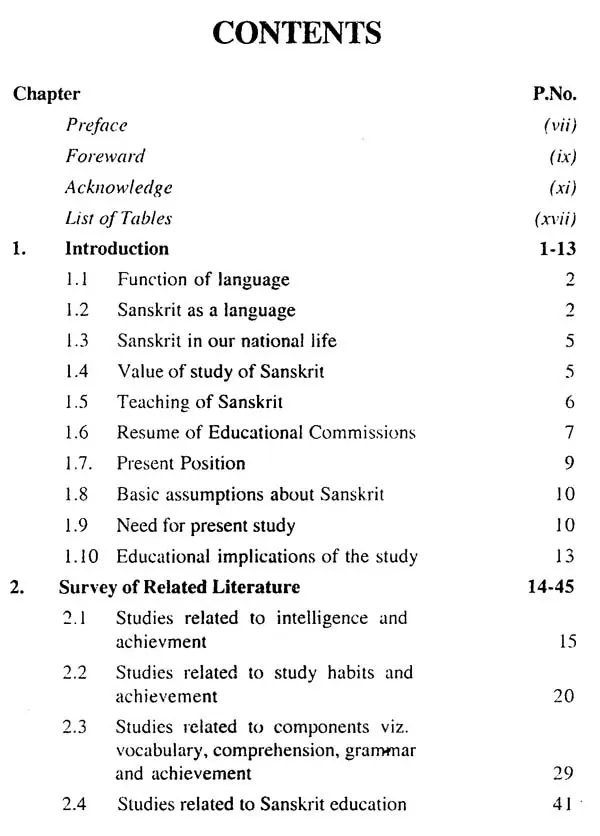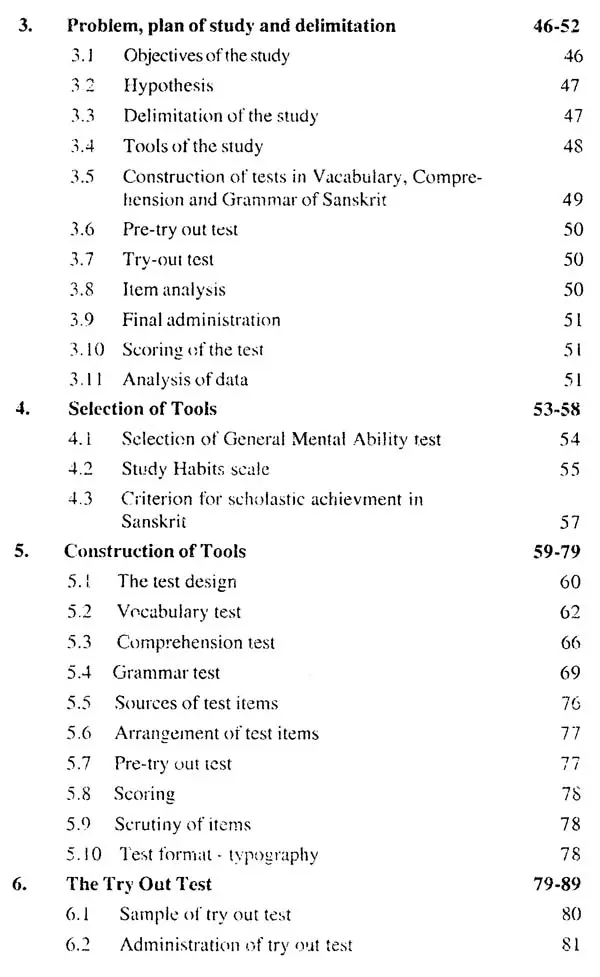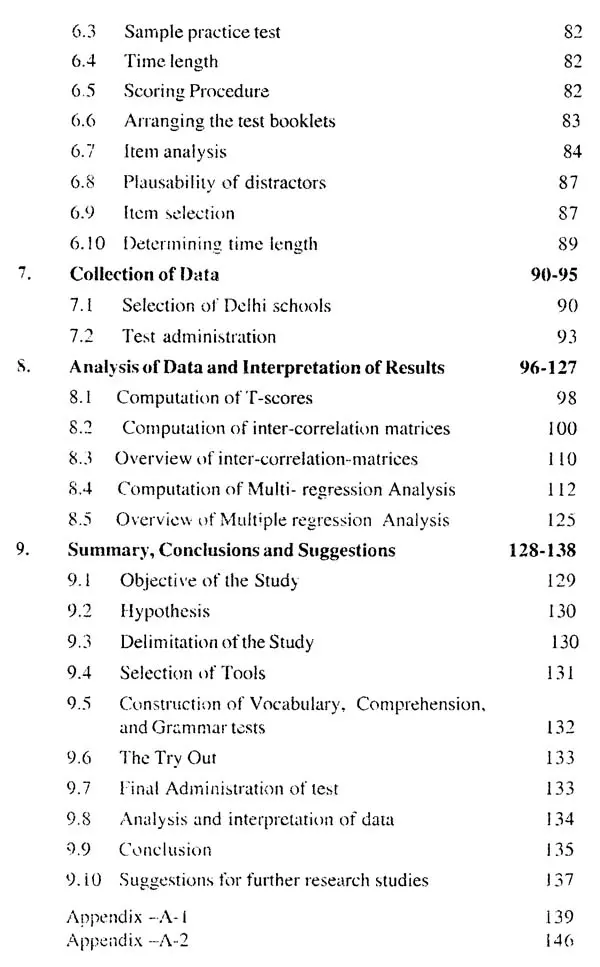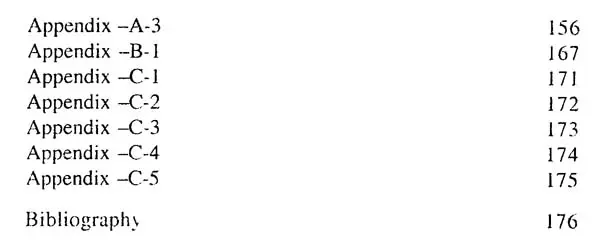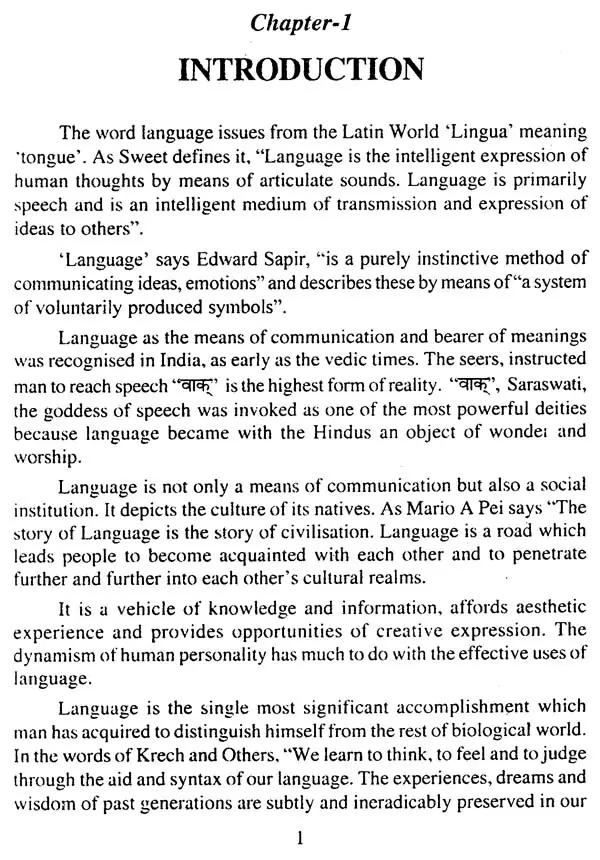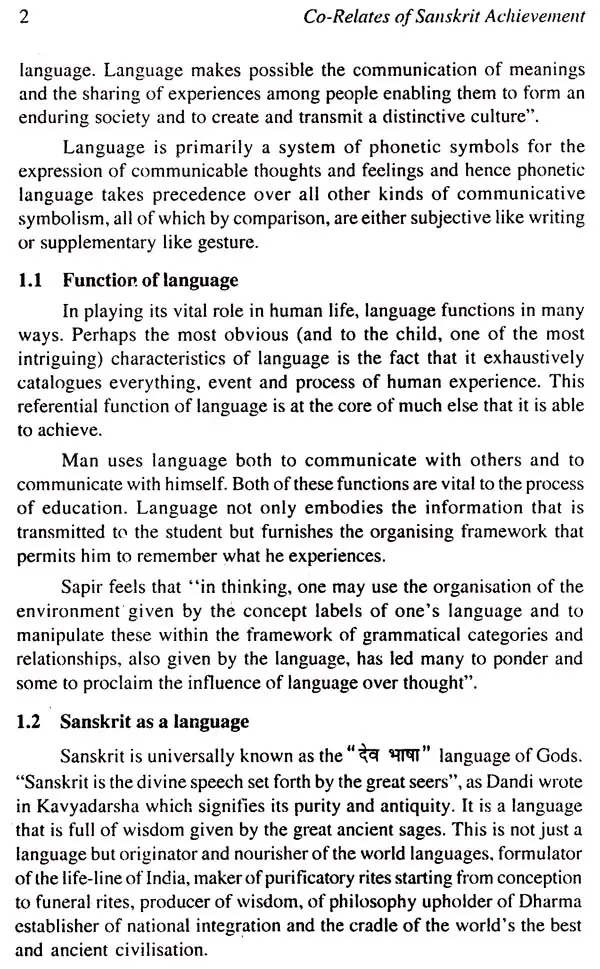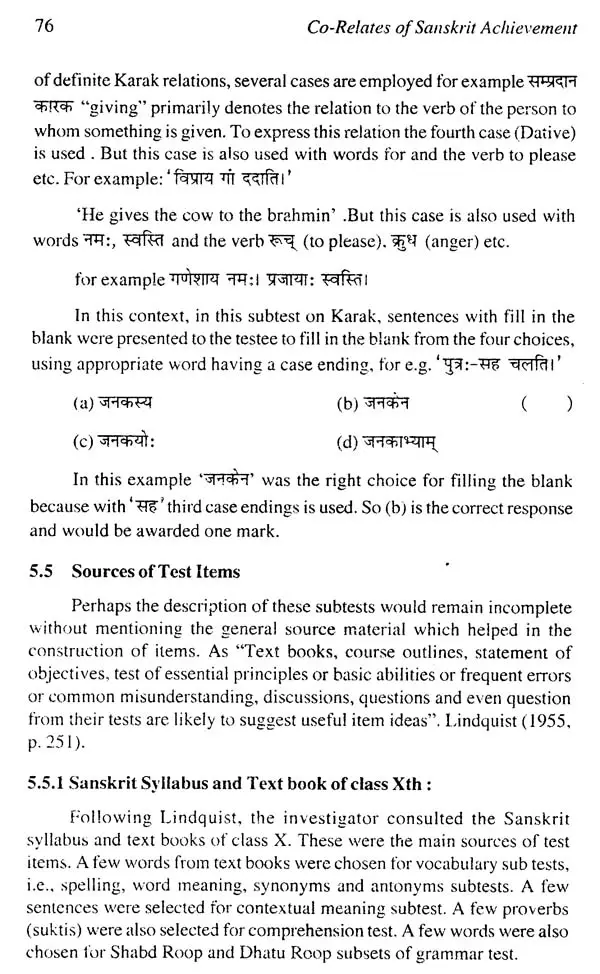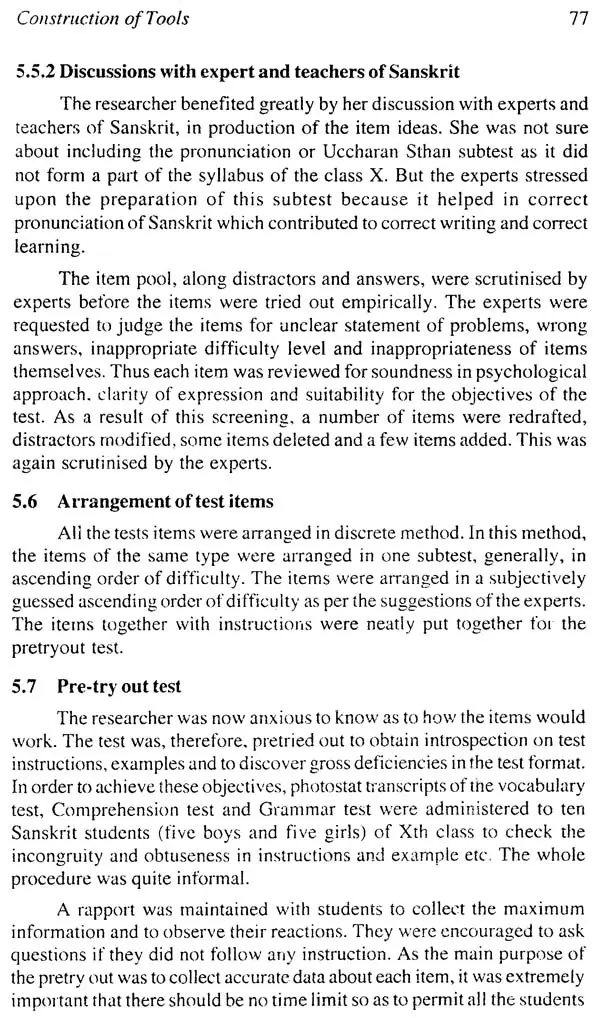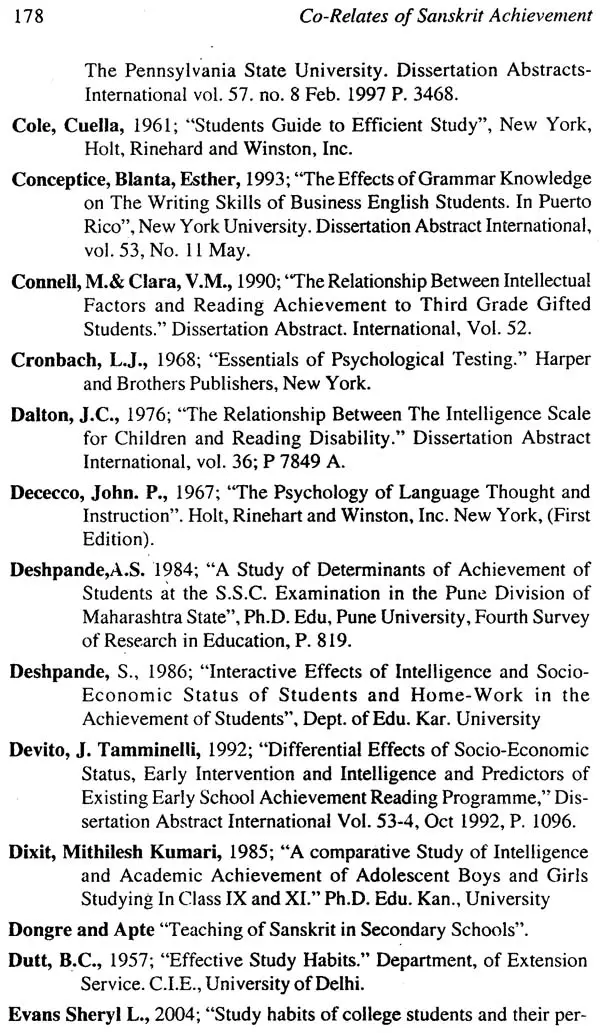
Co-Relates Of Sanskrit Achievements
Book Specification
| Item Code: | UAG781 |
| Author: | S.P. Jain |
| Publisher: | ABHISHEK PRAKASHAN, DELHI |
| Language: | English |
| Edition: | 2012 |
| ISBN: | 9788183900881 |
| Pages: | 189 |
| Cover: | HARDCOVER |
| Other Details | 8.50 X 5.50 inch |
| Weight | 350 gm |
Book Description
Sanskrit language is a precious tool in revealing our cultural heritage. It is a store house of knowledge and wisdom. No other language of the world has been so completely developed and grammatised as Sanskrit. Still very few students offer this language for their study. Correlates of Sanskrit Achievement is the outcome of a systematically conducted research by the author. It encompasses the analysis of relationship of Sanskrit achievement with depiction of variables such as intelligence, Study habits, Vocabulary, comprehension and Grammar of Sanskrit. The relationship of these variables with achievement has been discussed in detail by quoting 126 research studies undertaken in India and abroad.
The research conducted by the author has established positive and significant relationship between Sanskrit achievement and intelligence, vocabulary. The regression analysis of the data gained through administering the tests has revealed the Sanskrit grammar as the maximum contributor and Sanskrit comprehension as the next contributor to variance of Scholastic achievement in Sanskrit.
The book also discusses in detail the steps involved in the construction of achievement test in Sanskrit. The preparation and standardization of Test items for Sanskrit vocabulary, Sanskrit comprehension and Sanskrit grammar has been outlined for the benefit of researchers in the field of Sanskrit Education.
Prof. (Dr.) Shashi Prabha Jain was born in a reputed and educated family of Delhi in 1946. She had her early education in Delhi and obtained masters degrees in History, Sanskrit and Prakrit. She did her B.Ed form Regional College of Education Ajmer and M.Ed and Ph.D. in Education from Jamia Millia Islamia, New Delhi.
She started her teaching carrier at central Institute of Education (C.I.E.) Delhi university. In January 1970 she joined the education Dept. of Shri Lal Bahadur Shastri Sanskrit Vidyapeeth, Delhi. Presently, she is Professor, Head of Education Dept. and Dean of Adhunik Gyan-Vigyan faculty. She is the member of "Karya Parishad, Shishit Parishad" and Chairperson of women-cell of Vidyapeeth. .
She has participated and presented the papers in many national and international seminars and conferences and chaired the sessions. .
She orgainsed many workshops to restructure and update the syllabi of B.Ed and M.Ed. and many orientation programmes for faculty development. She is member of editional board of research journals like 'Prakrit Vidya'. She is widely travelled in India and abroad. She has visited and interacted with students and faculties of Education at stanford, Berkely and Arizona state university, U.S.A. .
Language is basic and pivotal to all human communications. In the past fifty years researches in language learning and language achievement have proved beyond an iota of any doubt that there is considerable force and merit in advancing the propositions that various aspects of language acquisitions are relatable to cognitive competencies of learners. The case of Sanskrit language is not an exception to this truth. Additionally, it has a singular distinction of being the mother of all Indian languages and on that showing, being the custodian of Indian Culture, the typical tradition of oriental learning and the highest standards of human values.
A number of scholars have recently brought out in closer terms the several properties of Sanskrit language which indicate its amenability to logic and language configurations being continually evolved, updated and refined through the core characteristics. Viewed in this backdrop, the author Dr. Shashi Prabha Jain has provided a firm empirical evidence through this volume in respect of the relationship between achievement of Sanskrit with intelligence, study habits, vocabulary, comprehension and grammar of Sanskrit. There is no gainsaying the fact that variables such as intelligence, study habits and language achievement domains such as vocabulary, comprehension and grammar correlate positively and significantly with the scholastic competencies on the other. Although there is room for a further systemic probe in respect of ascertaining the specific contributions of these competencies towards scholastic gains, the area of achievement in Sanskrit singled out for the purposes of conceptual clarity acquires some significance.
The author of this learned presentation, has formulated a comprehensive fresh research evidence in this regard. She has analysed data collected from valid research tools to adduce conclusions to the effect that the correlation between intelligence, Sanskrit vocabulary and comprehension and scholastic achievement in Sanskrit are observed to be positive and statistically significant. However, the correlation between study habits and scholastic achievement in Sanskrit is not found to be significant. The regression analysis conducted in this probe reveals that Sanskrit grammar appears to be the maximum contributor to the variance of scholastic achievement in Sanskrit. Sanskrit comprehension emerged as the next contributor to the variance in this regard. Strangely, intelligence, the measure of which were secured from a culturally fair non-verbal test, did not come out as a significant contributor.
Dr. Jain has made several suggestions in this volume to revisit the pedagogy of Sanskrit at various levels of education. On the whole, the entire formulation is cautiously carried out and is quite illuminating. I congratulate her for this significant contribution and recommend to the scholars of pedagogy in Sanskrit for such use as they deem fit.
**Contents and Sample Pages**
